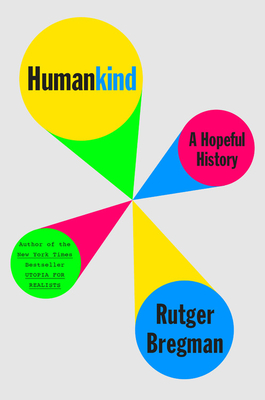THE town of Davos, high in the Swiss Alps, is popular with skiers and famed for having the largest natural ice-skating field in Europe.
But Davos is perhaps best known for hosting the annual invitation-only World Economic Forum, where the cream of the world’s political and business elites – mostly elderly white men – gather to mutually flatter one another and discuss how they think the world ought to be run.
During the January 2019 edition of the summit, one of the invited speakers, a straight-talking 30-year-old Dutch historian named Rutger Bregman, pointed out the hypocrisy of 1,500 private jets landing in Davos so that global elites could hear “about how we’re wrecking the planet.”
He continued his good-natured tirade by comparing the failure of the summit to address tax-avoidance by the world’s richest people as akin to being “at a firefighters conference where no one is allowed to speak about water.”
His remarks clearly resonated, quickly going viral on social media, propelling Bregman from relative obscurity, and lending him a degree of name-recognition, which in turn has most likely provided a significantly wider readership for his latest book, ‘Humankind’, than any of his previous work.
For many readers and booksellers it also prompted a timely revisit to his 2018 book, ‘Utopia for Realists’, with its call for a universal basic income seeming even more urgent and prescient in light of the massive financial insecurity caused by the Covid-19 pandemic.
Both in media appearances and in his writing, Bregman comes across as a down-to-earth academic clearly aware of and concerned with the difficulties of the socio-economic realities faced by the majority of people, namely all of us who will never receive an invitation to attend a Davos summit.
His frank willingness to call out hypocrisy and dismantle the narratives used by governing elites, whether political or economic, to prop up and add legitimacy to their rule, has won him more than a little admiration and respect.
Those approaching ‘Humankind’ with the expectation that he will bring similar forthright insight to his subject matter will not be disappointed.
As the subtitle – ‘A Hopeful History’ – suggests, this is an optimistic, half-glass-full sort of read.
His basic thrust is that the commonly accepted bleak view of human behaviour – where people act only in their own interests, seeing things in the win-or-lose binary of a zero-sum game – is essentially flawed and in most cases demonstrably wrong.
He points out that this is precisely the worldview espoused by many ‘successful’ people and is the distinguishing feature of those who are willing to be ruthless to achieve their ends. It’s no coincidence that a significantly higher proportion of those in the boardroom test positive for traits of sociopathy than the societal average.
But these people, Bregman assures us, are outliers. When examined objectively, study after study affirms and confirms that the vast majority of people are basically decent and trustworthy, and will not only put the interests of others on the same level as their own, but will often ignore the latter to favour the former.
Bregman plausibly debunks some of the greatest hits of the academicians whose work has largely and unquestioningly been accepted as truth writ large, showing how these flawed studies, and their doubly flawed conclusions, have deformed the scoliotic backbone of the social sciences for more than half a century.
Zimbardo’s notorious Stanford Prison Experiment; Milgram’s unethical Obedience to Authority experiments; even left-leaning (or at least left-adjacent) writers like Steven Pinker, Yuval Noah Harari, and Malcom Gladwell are not spared his criticism, though if you enjoy their books you will probably like this one.
One of the central themes Bregman introduces is the concept of the Veneer Theory, borrowing the term coined by primatologist and fellow-Dutchman Frans de Waal.
It posits that civilization is just a thin veneer masking the inherent nastiness of human nature, that without civilization we are monsters.
Rubbish, say both de Waal and Bregman.
On the red team we have Hobbesian cynicism; the millennia-old Abrahamic dogma that humans are essentially flawed and tainted by original sin; and the central tenet of capitalism that people are selfish.
On the blue team are Rousseau and his candid noble savage, and the belief that our defining characteristics are empathy, compassion, and friendship.
Bregman builds a case to argue that it is ‘nurture’ that derails the inclination towards the cooperation that is in our ‘nature’.
How to explain our incredible capacity for violence? No other species on Earth treats members of its own species so badly.
This is because of friendship, Bregman argues. Camaraderie.
Most atrocities are committed in the name of loyalty, not to an ideology, but to those to whom we have pledged our friendship, those we consider to be in our in-group. Basically, we don’t want to rock the boat and are too nice to say no.
Unlike Hollywood, in real life most soldiers never fire their guns, and when they do, more often than not they shoot to miss.
This is an uplifting book, with a degree of cherry-picking used to bolster its thesis, but those cherries are interesting and worthy of inclusion.
None of the chapters in this book contain ground-breaking revelations, but it’s the case built and reinforced through their combination that proves compelling.
While for this reader it wasn’t entirely convincing, it did help move the needle in a more positive direction.
It’s easy to conflate cynicism with realism, but Bregman urges us to consider whether our ‘realism’ is based on facts, or whether it’s falsely fabricated from the toxic diet of worst-case-scenarios that dominate the headlines of our if-it-bleeds-it-leads media diet.
If there was ever a year where our pessimism seemed confirmed, and our optimism more needed than ever, that would be this year.
At a time when many, even most of us are increasingly confined and resigned to having devices and algorithms mediate our input, Bregman’s book might just be the crack that allows some light in. – The Vibes, November 29, 2020






















